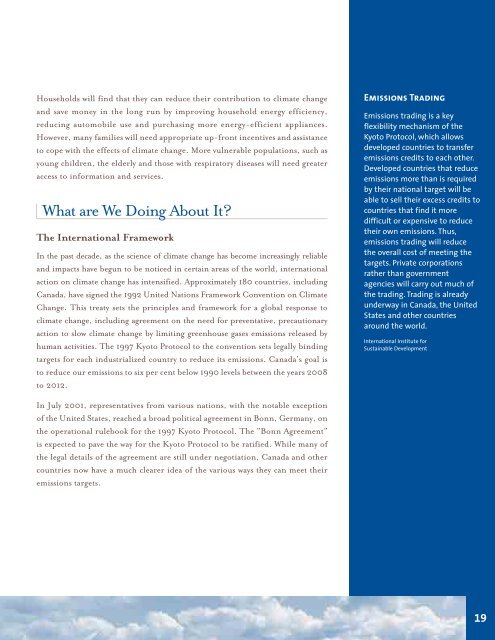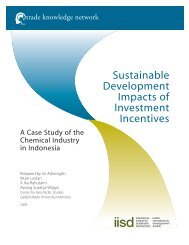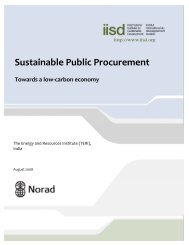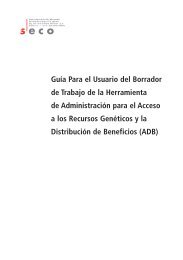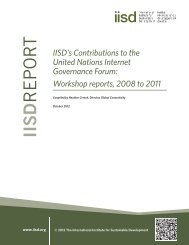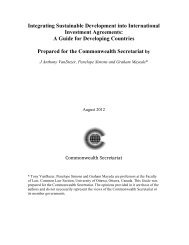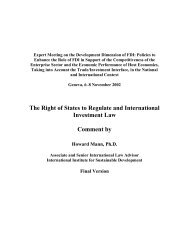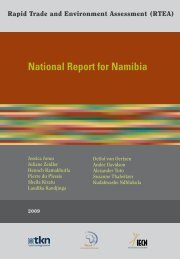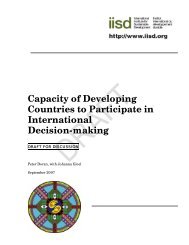Manitoba Climate Change Task Force - International Institute for ...
Manitoba Climate Change Task Force - International Institute for ...
Manitoba Climate Change Task Force - International Institute for ...
You also want an ePaper? Increase the reach of your titles
YUMPU automatically turns print PDFs into web optimized ePapers that Google loves.
Households will find that they can reduce their contribution to climate change<br />
and save money in the long run by improving household energy efficiency,<br />
reducing automobile use and purchasing more energy-efficient appliances.<br />
However, many families will need appropriate up-front incentives and assistance<br />
to cope with the effects of climate change. More vulnerable populations, such as<br />
young children, the elderly and those with respiratory diseases will need greater<br />
access to in<strong>for</strong>mation and services.<br />
What are We Doing About It?<br />
The <strong>International</strong> Framework<br />
In the past decade, as the science of climate change has become increasingly reliable<br />
and impacts have begun to be noticed in certain areas of the world, international<br />
action on climate change has intensified. Approximately 180 countries, including<br />
Canada, have signed the 1992 United Nations Framework Convention on <strong>Climate</strong><br />
<strong>Change</strong>. This treaty sets the principles and framework <strong>for</strong> a global response to<br />
climate change, including agreement on the need <strong>for</strong> preventative, precautionary<br />
action to slow climate change by limiting greenhouse gases emissions released by<br />
human activities. The 1997 Kyoto Protocol to the convention sets legally binding<br />
targets <strong>for</strong> each industrialized country to reduce its emissions. Canada’s goal is<br />
to reduce our emissions to six per cent below 1990 levels between the years 2008<br />
to 2012.<br />
In July 2001, representatives from various nations, with the notable exception<br />
of the United States, reached a broad political agreement in Bonn, Germany, on<br />
the operational rulebook <strong>for</strong> the 1997 Kyoto Protocol. The “Bonn Agreement”<br />
is expected to pave the way <strong>for</strong> the Kyoto Protocol to be ratified. While many of<br />
the legal details of the agreement are still under negotiation, Canada and other<br />
countries now have a much clearer idea of the various ways they can meet their<br />
emissions targets.<br />
Emissions Trading<br />
Emissions trading is a key<br />
flexibility mechanism of the<br />
Kyoto Protocol, which allows<br />
developed countries to transfer<br />
emissions credits to each other.<br />
Developed countries that reduce<br />
emissions more than is required<br />
by their national target will be<br />
able to sell their excess credits to<br />
countries that find it more<br />
difficult or expensive to reduce<br />
their own emissions. Thus,<br />
emissions trading will reduce<br />
the overall cost of meeting the<br />
targets. Private corporations<br />
rather than government<br />
agencies will carry out much of<br />
the trading. Trading is already<br />
underway in Canada, the United<br />
States and other countries<br />
around the world.<br />
<strong>International</strong> <strong>Institute</strong> <strong>for</strong><br />
Sustainable Development<br />
19


